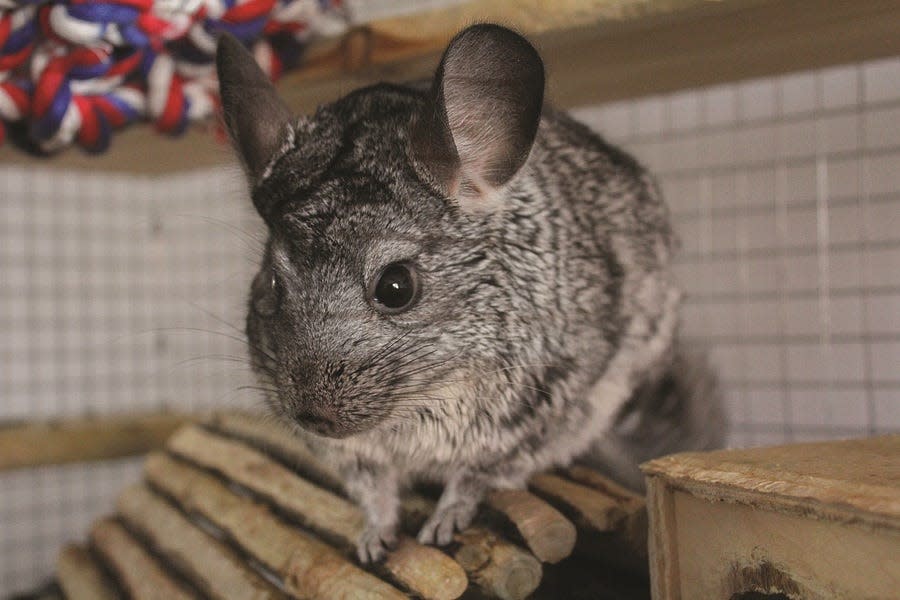Health News: We spill the tea on pet care lectures at this year's VMX conference

Caring for aging pets, recognizing pain and the perennial topic of feline house soiling: These were just a few of the hundreds of sessions presented at the Veterinary Meeting and Expo last month in Orlando. Dr. Becker attended in person, and I attended virtually. We go to veterinary conferences to learn about advances in veterinary medicine and find news for future features. The sessions are aimed at veterinarians and veterinary technicians, but we've rounded up some takeaways for pet owners.
• When cats start peeing or pooping outside of the litter box, you need to, well, think outside the box. You probably already know that cats prefer super-clean litter boxes. If you're scooping daily and keeping the box clean, what else could be causing a cat's dissatisfaction with toileting arrangements? One thing to consider is whether they need a haircut, says Terry Curtis, DVM, a behavior specialist at the University of Florida. Long hair surrounding the anal area may become matted, causing pain when the cat tries to eliminate. Long hair between the toes can affect the tactile sensation when the cat steps into the litter box. Work with a feline-friendly groomer or your veterinarian to trim these sensitive areas so you don't accidentally cut the skin.
• As pets age, their vision changes. The lens begins to harden, and by the time they're 10 years old, cats and dogs can become more near-sighted. For instance, you may notice that your pet is more hesitant about going down stairs, says Mary Gardner, DVM, co-founder of Lap of Love Veterinary Hospice. To help them feel more confident about navigating steps, she suggests illuminating stairs with flameless tea lights. (Bonus: It looks pretty!)
• It's also more important than ever to brush aging pets regularly. Brushing stimulates the production of natural oils by sebaceous glands. And senior pets are more susceptible to skin infections, which can, to put it plainly, cause them to stink. It's not normal for your old pet to smell bad, so take them to the vet if you notice that they're giving off an unpleasant odor.
• Chinchillas should eat a high-fiber diet consisting of grass hays and commercial chinchilla pellets, advised Zoltan Szabo, DVM, a specialist in zoological medicine and care of exotic companion mammals and birds. In the notes for his lecture "Chinchilla Tips and Tricks," he writes that they shouldn't be given grains, dried apples, raisins, sunflower seeds or fresh food items like vegetables, greens or fruits. Instead, offer items for gnawing, such as nontoxic tree branches.
• What does pain look like in your cat? The face tells all. In her lecture, "Take-Home Medication, Pill Burdens, Compliance and the Human Animal Bond," Dr. Sheilah A. Robertson, medical director for Lap of Love, says cat owners can download the Feline Grimace Scale app to their smartphone or go to the website felinegrimacescale.com for quick reference as to how their cat is feeling. Scoring your cat at home for pain allows you to reliably alert your veterinarian to pain in you cat.
• Why no canine grimace scale? Dogs are more of a challenge because their facial features vary much more that those of cats, says veterinarian Duncan Lascelles, professor of translational pain research at North Carolina State University, who spoke on the latest pain management and diagnosis guidelines from the American Animal Hospital Association. "There are dogs with short noses, dogs with long noses, dogs with noses in-between," he says. Instead, your veterinarian may have you answer a questionnaire or go through a checklist to screen your dog for pain or gauge the level of pain.
• Cold compression therapy decreases the signs of pain, swelling and lameness. It's underutilized in pets, but after surgery, it's very effective in decreasing inflammation and improving range of motion, Dr. Robertson says. It's something than can easily be done at home to help pets recover from surgery or injuries.
— Dr. Marty Becker and Kim Campbell Thornton
Do you have a pet question? Send it to askpetconnection@gmail.com or visit Facebook.com/DrMartyBecker. Pet Connection is produced by veterinarian Dr. Marty Becker, journalist Kim Campbell Thornton, and dog trainer/behavior consultant Mikkel Becker. ©2023 Andrews McMeel Syndication
This article originally appeared on South Bend Tribune: Pet Connection: Pet care information shared from veterinary expo

